
One of the things a beekeeper has to remember is that they have taken responsibility for livestock. Generally, the mention of ’livestock’ brings up a picture of cows, sheep and pigs. However, a colony of bees is just as much livestock. You are usually keeping them to provide you with honey and maybe beeswax.
This means you are looking after the welfare of your colonies for 12 months of the year. Yes, even in winter when the bees are clustering in the hive. Then you need to check regularly that they are not running out of food and that the hive is still intact and has not been blown over in a storm or let rain in through a leaky roof.
TELLING HOW THE BEES ARE SHORT OF FOOD
You especially need to make sure your colony has sufficient food at specific times of year. The obvious one is when you have taken off the honey and need to replace the bees’ winter stores with sugar syrup or candy. Of course, you can always leave them a super of honey which is by far the best winter food but that depends on your approach and how much honey the bees have collected and how much you want to take.
If the weather is bad during the year, bees can run short of food. Although it is generally good (we hope), in summer, forage can be in short supply, especially in a heat wave when nectar can dry up. How this affects your colonies depends to some extent on where you are. Bees in urban settings will have access to garden flowers and should be able to obtain sufficient nectar income to keep them ticking over. They should, of course, have some stores already around the brood nest although prolific bees such as the Italian Apis mellifera ligustica are proficient at turning stores into brood.
Diese Geschichte stammt aus der August 2023-Ausgabe von The Country Smallholder.
Starten Sie Ihre 7-tägige kostenlose Testversion von Magzter GOLD, um auf Tausende kuratierte Premium-Storys sowie über 8.000 Zeitschriften und Zeitungen zuzugreifen.
Bereits Abonnent ? Anmelden
Diese Geschichte stammt aus der August 2023-Ausgabe von The Country Smallholder.
Starten Sie Ihre 7-tägige kostenlose Testversion von Magzter GOLD, um auf Tausende kuratierte Premium-Storys sowie über 8.000 Zeitschriften und Zeitungen zuzugreifen.
Bereits Abonnent? Anmelden
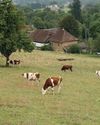
How to Buy a Smallholding in France- Long-time smallholder Lorraine Turnbull looks at the practicalities of moving to rural France
Aspiring smallholders are continually thwarted by the prices of smallholdings and property with land located within the UK. Even the humblest croft in Scotland comes with a substantial price tag and conditions which would make even an adventurous wannabee consider carefully. But all is not lost. For those willing to take the adventure of a lifetime, there is always Europe, and one of the most popular places is France.

Meet the Bournemouth goats and their supporters
These capricious animals are hard workers preserving the natural habitat

Still warm enough to sit outside with a Pizza
Henrietta Balcon uses fresh figs to create an unusual dish at Harvest time
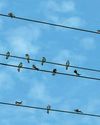
Goodbye to the birds of spring and summer
If you look and listen you might be able to see them preparing to leave says The RSPB
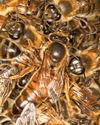
Get ready for the colder weather in the warmth of late summer
Claire Waring advises on doing the best to make sure your colonies survive until next spring
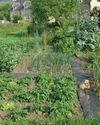
Preparing the Veg Patch for Winter
Lee Senior says, a well-run plot can excitingly continue to produce good quality, tasty, fresh food for much of winter
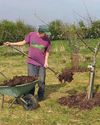
Time to prepare to plant your orchard
Wade Muggleton, smallholder and author of The Orchard Book, shares his practical experience so you can create your own fruit collection
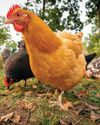
Choosing feed for the autumn
As autumn approaches, Joanna Palmer, nutritionist at the Smallholder Range, offers advice on choosing the right feed to support your adult birds through their annual moult and ensure your young birds grow and finish well at this time of the year.
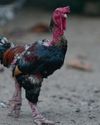
Vet advice from an experienced poultry vet
Reflecting on how much the humble hen has helped people world wide plus advice on stopping the scourge of red mite

Give your hens some support
Paul Donovan looks at the right and wrong ways of handling birds